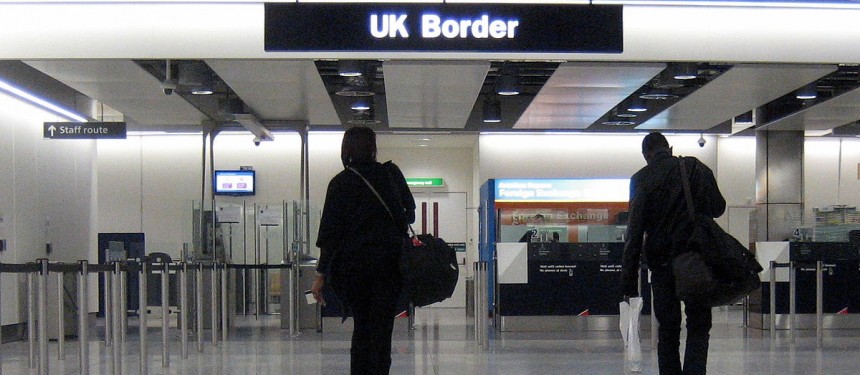Recent events have made many people wonder about the impact on touring international artists. Recent experience for Way Art West and Somali touring, might provide a worrying pointer.
In various forms Way Art West has been involved in bringing the best of international music into the UK for almost 20 years, to literally tens of thousands of delighted audience members. The artists came, performed and left happy.
Last month saw our first ever refusal to permit an artist to come, on this occasion a well known USA citizen of Somali heritage, in spite of all the normal assurances being provided. Conversations with lawyers suggested that this was becoming more common.
The collapse of the tour was averted by the replacement by two artists from the European Economic Area (EEA) who are allowed entry outside of the oft quoted points based system, which as a matter of fact is already in place in the UK. Had we not been part of the EEA then the tour would have collapsed and the four figure loss would have turned into a five figure one forcing the closure of the business and the end of twenty years work in the field of diversity in the arts. UK jobs would have been lost. Next time we won’t be so ‘lucky’
But why work with overseas artists? In some ways for many in the arts it is a question that is almost pointless to ask. However in the case of working with certain communities it is worth much more than ‘just’ the arts.
The Somali community in the UK began in the 1880s and has risen through refugee migration from the war torn Horn of Africa to a UK population of close to ½ million. This community has paid taxes and contributed to society but has had no investment in arts. Music is marginalised and the many UK based artists scratch out a living playing at weddings. As a result Somalis are used to seeing their singers for free at weddings and not touring.
Way Art West has tried touring UK based Somali singers but audiences are low. When we have toured overseas artist in partnership audiences have been much larger and a corner has been turned in terms of engaging Somali communities with the arts and taking them to major concert halls in Birmingham, Liverpool, Sheffield, Bristol, Manchester and London. Thousands of Somalis have entered venues such as the Crucible in Sheffield, Philharmonic Hall in Liverpool, Colston Hall in Bristol and the Southbank Centre in London for the first time. We want to grow the market in the hope that UK artists will then benefit.
We have sought legal advice and have been informed that there is no appeal to such decisions now and that to stand any chance of progress in future many more thousands of pounds will have to be spent in legal costs. This will make such work even harder and more costly.
What really bothers us having worked with these communities though is the impact on community relations. Many communities are deeply suspicious of projects targeting them, and this is largely due to the primary investment coming from the PVE (‘Prevent’) programme. The community feels that it is about targeting them as terrorists or terrorist sympathisers. In fact it has been the first question we have been asked on a number of occasions when proposing work with Somali communities. Our touring work has been welcomed by the vast majority in the communities.
There is little employment or opportunities for UK Somalis to work in the arts. But this work – we are working with 6 young Somali producers to develop their skills in touring – will have to end.
The end point? Fewer UK arts jobs, poorer community relations and a slightly narrower, duller cultural life for our country.

